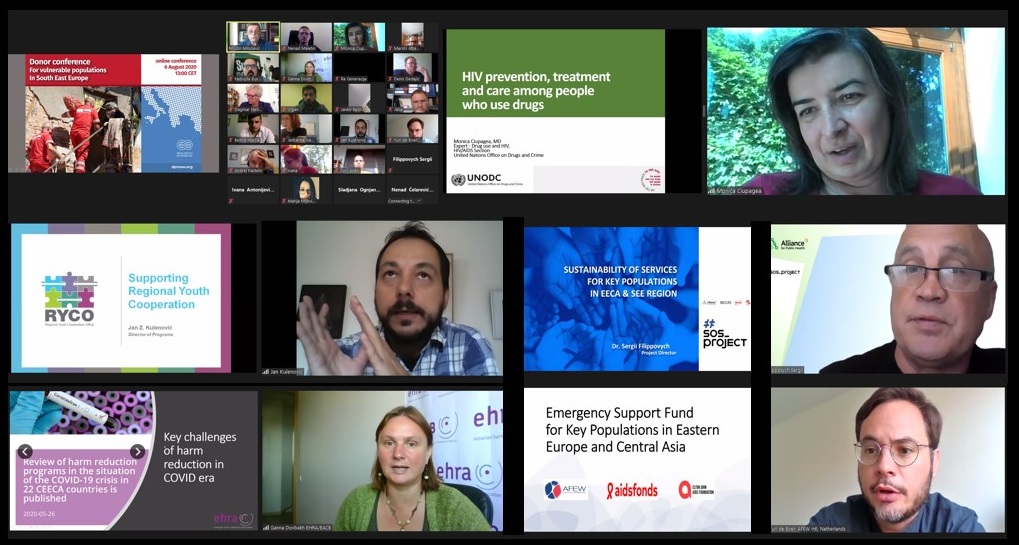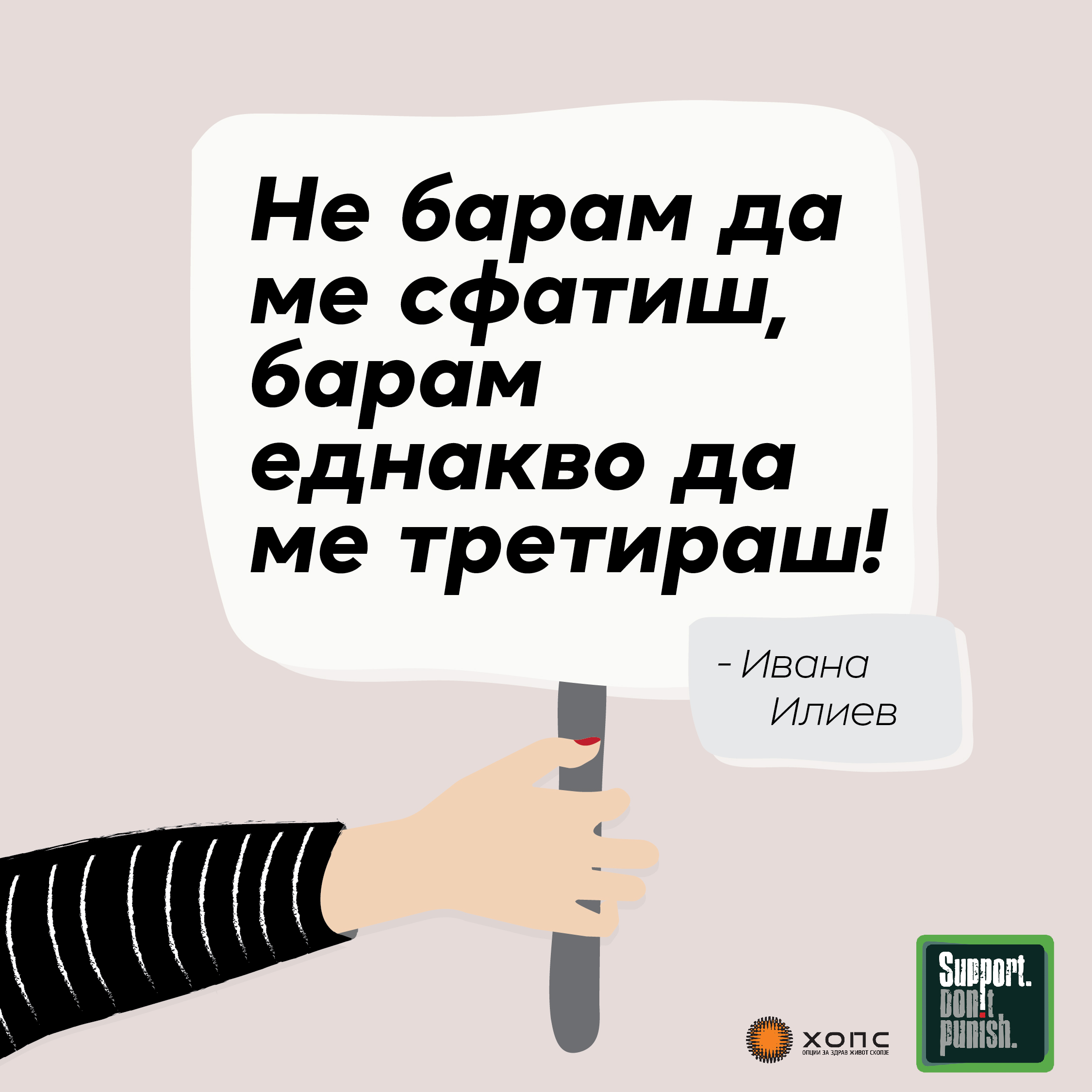The coronavirus outbreak has a devastating effect on general population around the world as well as on people who use drugs and other connected vulnerable groups – homeless people, sex workers, LGBTI, women and young people who use drugs, men who have sex with men, people living with HIV and many others. These populations generally have limited or no access to health services, social benefits, clean water and food. Current situation multiplies these obstacles and add new ones.
Since February, the Drug Policy Network South East Europe and our member organisations were primarily engaged on providing support dedicated to the practical strengthening of the health, social, economic and mental resilience of the vulnerable groups of citizens. That included harm reduction and treatment services, fighting stigma and discrimination, providing legal and social advices and responding to a variety of additional needs these groups now have.
During the Conference on protection of vulnerable populations in South East Europe, held on 23 April 2020 and the Conference Social, mental and economic consequences of the coronavirus pandemic to the vulnerable populations in SEE: Do we know them and how to recognise and respond to them? held on 17 July 2020, DPNSEE learned that it is time to invite wider donors’ community, from national, regional to international level, to ensure universal, efficient, sustained funding and coordination respond to the needs of the vulnerable populations in the region.
The global pandemic requires a global response, and that response has to cover all.
The aim of the Conference is to present the needs and potential projects of vulnerable populations in South East Europe and establish better communication, coordination and cooperation between service providers and public and private funding programmes. The Conference will strengthen cooperative ties between potential project implementers from different sectors, increase knowledge of available public and private funding sources and improve strategic coordination between project ideas and funding structures.
South East Europe is usually side-lined in international support to key populations. We sincerely hope that vulnerable groups we serve deserve more attention and support.
The Conference will include plenary presentations from the region and donors, and work in two separate discussion rooms:
Group 1: Sustainability of services for vulnerable populations
- Quality assurance in service providing
- Bridging funds for emergency situations (COVID and wider)
- Children living in families with drug abuse history and young people who use drugs
Group 2: Emerging needs of key populations
- Respond to the economic consequences of coronavirus pandemic (empowering, rapid assessments and surveys, practical support on housing, food, clean water supply, etc.)
- Involvement of key populations in designing and monitoring of the services for them
The Conference will be held on Thursday 6 August 2020 starting at 13:00 CET (14:00 EEST) via Zoom at the following link https://us02web.zoom.us/j/89837901957. The conference would last for a maximum of 90 minutes.
Access to the Conference will be open. We would appreciate that you apply using following link https://forms.gle/bmDW7q25Ge15o2wW6 and indicate in which small group you would like to participate. If we don’t receive that information, we shall have to make the choice for you.
The Conference will be recorded in audio and visual format. The recording will be used for reporting only.















